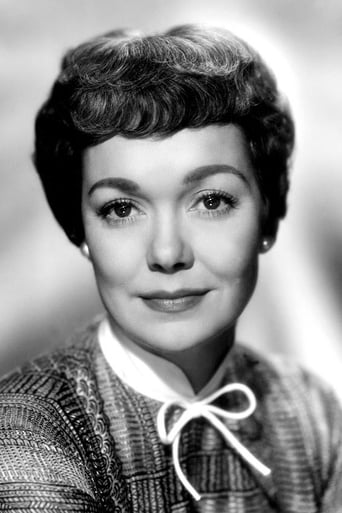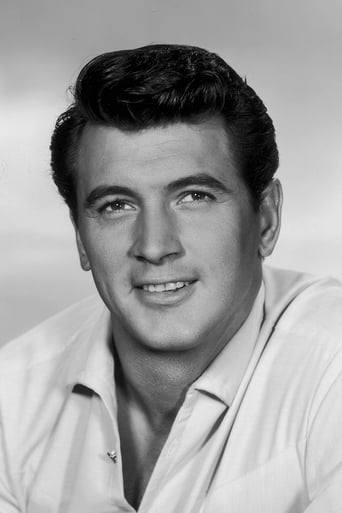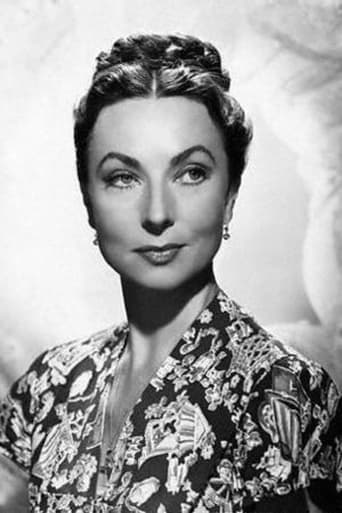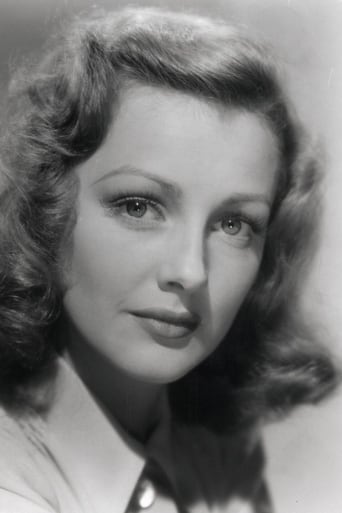Skunkyrate
Gripping story with well-crafted characters
Acensbart
Excellent but underrated film
Keeley Coleman
The thing I enjoyed most about the film is the fact that it doesn't shy away from being a super-sized-cliche;
Kirpianuscus
after so many time, it is a challenge to define the source of seduction for this real beautiful film. sure, many explanations are reasonable. the romanticism, the performances, the delicate love story against everything, few scenes who are more than magnificent, the basic truths in the right light. but this is only the first step for admire a drama about the need to be yourself. about the essence of happiness. and about the fight for it. short, a film who represents a precious experience.
SnoopyStyle
Cary Scott (Jane Wyman) is an affluent widow with two grown children. They still come home for the weekends but she lives an empty live. Ron Kirby (Rock Hudson) is her arborist who runs his father's nursery. Cary and the younger Ron grow closer and he proposes to her. She's scared but she eventually accepts. She becomes gossip material. Then everybody else objects especially her kids. She sacrifices her happiness for them. She gets even more lonely and heart broken. Is it too late for her to find love? This is generally an old fashion romance except for the age difference and the expectation on the woman widower. The romance is pretty good with Wyman and Hudson although it does get very melodramatic at the end. The romance challenges the social morals of the conservative norms. The tension is quite good especially with her kids. Her facing her social expectations are some of the best scenes in the movie.
gavin6942
An upper-class widow (Jane Wyman) falls in love with a much younger, down-to-earth nurseryman (Rock Hudson), much to the disapproval of her children and criticism of her country club peers.Today (2013) we live in the world of cougars and a very laissez-faire attitude to relationships and sexuality. For the most part we do not care who sleeps with who, who lives with who, and whatnot. Of course, not long ago, it was taboo to be openly gay or sometimes even to embrace cohabitation.In 1955, what were the standards? Apparently even to date a younger man was frowned upon. They did not live together or have an intimate relationship... and yet Cary's children practically disown her. Why? Perhaps it could be more the class issue than the age issue, but regardless it comes across as silly by today's standards, considering the children are grown and this is not their business.The film's use of color is impressive. In some ways it reminds one of "Black Narcissus" (1947), though the color palette makes the characters and backgrounds seem almost like stained glass. Cinematographer Russell Metty had a long career, dating back to the 1920s and earning an Oscar in 1960 for "Spartacus". Perhaps he should have received an award here.In this film, Rock Hudson is shown as "an object" or "a spectacle", somewhat reversing traditional gender roles. This, of course, is quite intentional, as it would hardly be taboo for an older man to pursue a younger woman. But in some ways it is more than age, with his very body being something to admire, not a common male trait. (Cary's son flatly says that he is nothing but "muscles".)Much can be said about the replacement of a lost love with television and what the film was trying to say with this. Television was still a relatively new medium at the time, so in some ways this is prescient in how it suggests that we could fill our lives with such a thing.The Criterion commentary discusses whether or not Sirk's approach was "Brechtian" and how his shots were largely claustrophobic. Much of the discussion is helpful, though they do tend to get a bit too academic at times, seeing symbolism where it likely is not. And there is a long tangent on trying to define "melodrama" and whether or not it is a gendered term.
ianlouisiana
Come on...."All that heaven allows" was cheesy in 1955 and its cheesy now.The difference is, cheesy is regarded as cool in 2012 in a post - modern - ironic kinda way;but that doesn't change the fact that it is and always will be an overheated melodramatic piece of kitsch with very little to commend it. How Douglas Sirk's admirers have conned critics into considering him as a major auteur is beyond me.But I guess if you stand on a street corner and shout long enough that the moon is made of cream cheese somebody is going to believe you. We have a Lady Chatterley thing going here with Mr R.Hudson as the gardener becoming involved with the socially superior Miss J.Wyman. When they decide to marry, her children - a twenty going on fifty five boy and a girl who makes a lot of speeches but absolutely no sense - strongly disapprove,as do her friends. She dumps the young Rock so hastily it almost seems rude,but,as you know,love will find a way - and it does,but not before he falls down a cliff.Don't ask. So there you have it.And I read that this film is in the Library of Congress.It's almost enough to make me want to withdraw my subscription.







